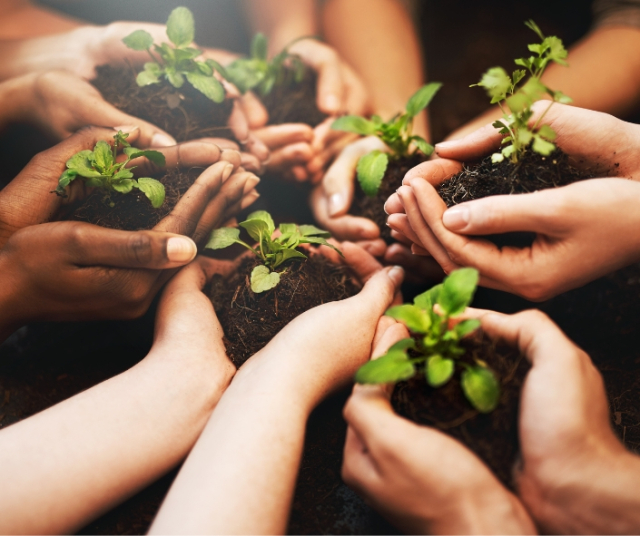Earth Day is a global occasion to reflect on the importance of caring for our planet and promoting environmental sustainability. In Ecuador, this celebration takes on special relevance due to the rich biodiversity and unique ecosystems that the country houses. Every April 22, environmentalists, activists, community leaders and citizens come together to commemorate this day and work together to protect and preserve the environment. In this article, we will explore how Earth Day is celebrated in Ecuador, the activities and events that take place during this day, and the importance of promoting environmental awareness and collective action to benefit the planet.
Origins and Meaning of Earth Day.
Earth Day was established on April 22, 1970 as a response to growing concern about environmental problems and environmental degradation around the world. Since then, this date has become a global platform to raise awareness among the population about issues such as climate change, biodiversity loss, pollution and deforestation, and to encourage individual and collective action in favor of a sustainable future for the planet.
In Ecuador, Earth Day is celebrated with enthusiasm and commitment, as the country is home to an incredible diversity of ecosystems, from the Amazon rainforests to the snow-capped peaks of the Andes and the enchanted islands of the Galapagos. This natural wealth is a source of pride and responsibility for Ecuadorians, who recognize the importance of protecting and preserving these resources for future generations.
Celebrations and Activities during Earth Day in Ecuador.
Earth Day is celebrated in Ecuador with a wide variety of activities and events that promote environmental awareness and citizen participation in environmental protection. Some of the most notable celebrations include:
Educational Events and Conferences:
Educational talks, conferences and workshops are organized on key environmental topics, such as biodiversity conservation, natural resource management, renewable energy and the fight against climate change. These events provide an opportunity for experts, academics and activists to share knowledge and experiences with the public, and promote environmental education and ecological literacy.
Reforestation Activities:
Reforestation campaigns are carried out in different regions of the country, where volunteers and local communities plant native trees and contribute to the restoration of degraded ecosystems. These activities not only help combat deforestation and habitat loss, but also foster a sense of environmental responsibility and teamwork.
Beach and River Cleaning:
Cleaning days are organized for beaches, rivers and coastal areas, where volunteers collect waste and solid waste to avoid water pollution and protect marine fauna. These initiatives promote awareness about the impact of garbage on the environment and encourage responsible consumption and waste management practices.
Environmental Fairs and Eco-markets:
Environmental fairs and eco-markets are held in different cities of the country, where sustainable products and services are exhibited, such as organic foods, ecological crafts, recycled products and clean technologies. These events promote responsible consumption and the green economy, as well as the appreciation of local products and sustainable production.
Artistic and Cultural Activities:
Artistic and cultural activities related to the environment are organized, such as concerts, art exhibitions, street theater and environmental film screenings. These artistic manifestations serve as a creative way to raise awareness among the population about environmental issues and generate empathy and solidarity towards nature.
The Importance of Promoting Environmental Awareness and Collective Action.
Promoting environmental awareness and collective action is essential to addressing the environmental challenges facing the planet. In Ecuador, as in many other countries, environmental awareness plays a crucial role in the protection and conservation of natural ecosystems and the country's unique biodiversity. Here, natural wealth is a central element of national identity, and its preservation is a responsibility shared by all Ecuadorians.
Raising Awareness about Environmental Challenges.
Promoting environmental awareness involves informing and educating the population about the environmental problems facing the country and the world in general. This includes issues such as climate change, biodiversity loss, air and water pollution, deforestation and land degradation. By increasing public understanding of these issues, it creates a basis for action and encourages the adoption of sustainable practices in all areas of life.
Promotion of Citizen Participation.
Collective action is essential to address environmental challenges effectively. Citizen participation in environmental initiatives, whether at a local, national or global level, can make a difference in the protection and conservation of the environment. This includes collaboration with environmental organizations, participation in volunteer projects, attendance at demonstrations and events related to the environment, and the exercise of responsible citizenship through conscious consumption and proper management of resources.
Impact on Policies and Decisions.
Environmental awareness and collective action can also influence government policies and decisions related to the environment. By expressing environmental concerns and demands, citizens can pressure political leaders to take bolder steps in protecting the environment and promoting sustainability. This may include implementing stricter laws and regulations, allocating resources for environmental projects, and adopting policies that favor the transition to a green, low-carbon economy.
Construction of a Culture of Sustainability.
Promoting environmental awareness and collective action also involves fostering a culture of sustainability in society. This involves changing individual and collective habits and behaviors to reduce environmental impact and promote more sustainable lifestyles. This can include actions such as reducing energy and water consumption, recycling and reusing materials, opting for more sustainable forms of transportation, supporting eco-friendly products and companies, and practicing nature conservation in everyday life.
Earth Day in Ecuador, celebrated every April 22, is an occasion to reflect on our relationship with the environment and renew our commitment to the protection and preservation of nature. During this day, environmentalists, activists, community leaders and citizens come together to promote environmental awareness and collective action for the benefit of the planet. By participating in the celebrations and activities during Earth Day, we are helping to build a more sustainable and resilient future for future generations.
